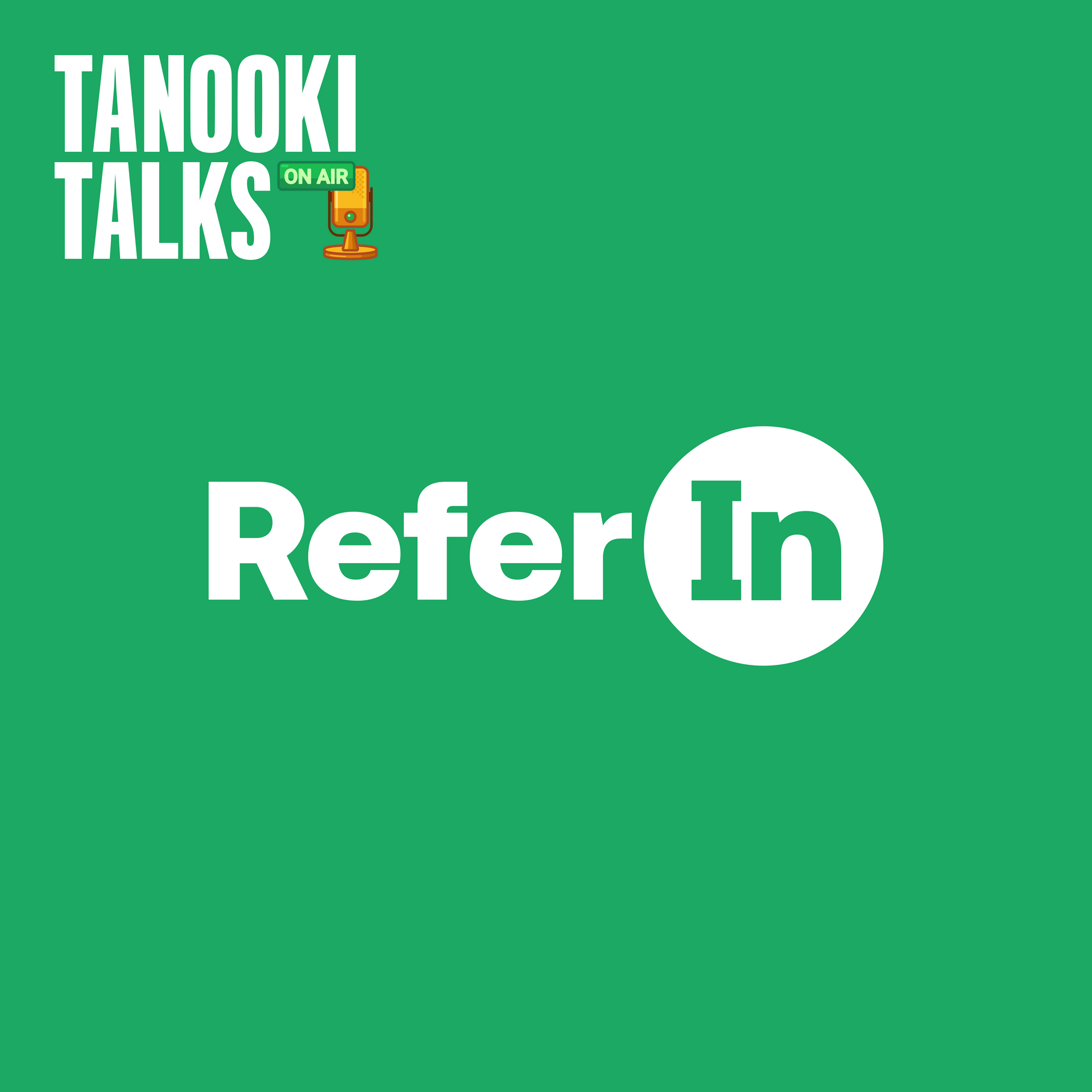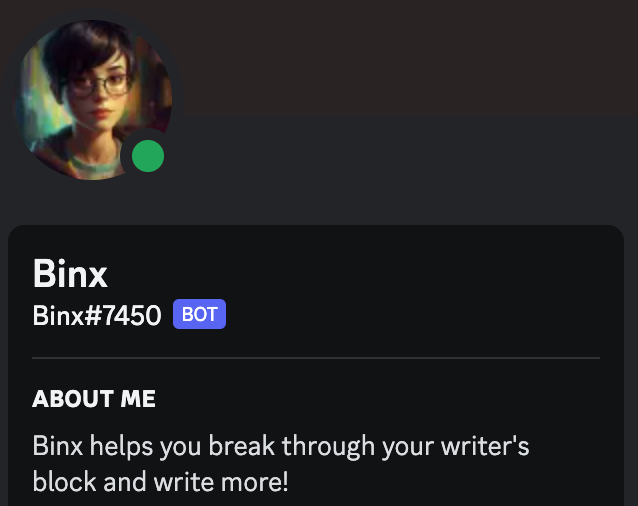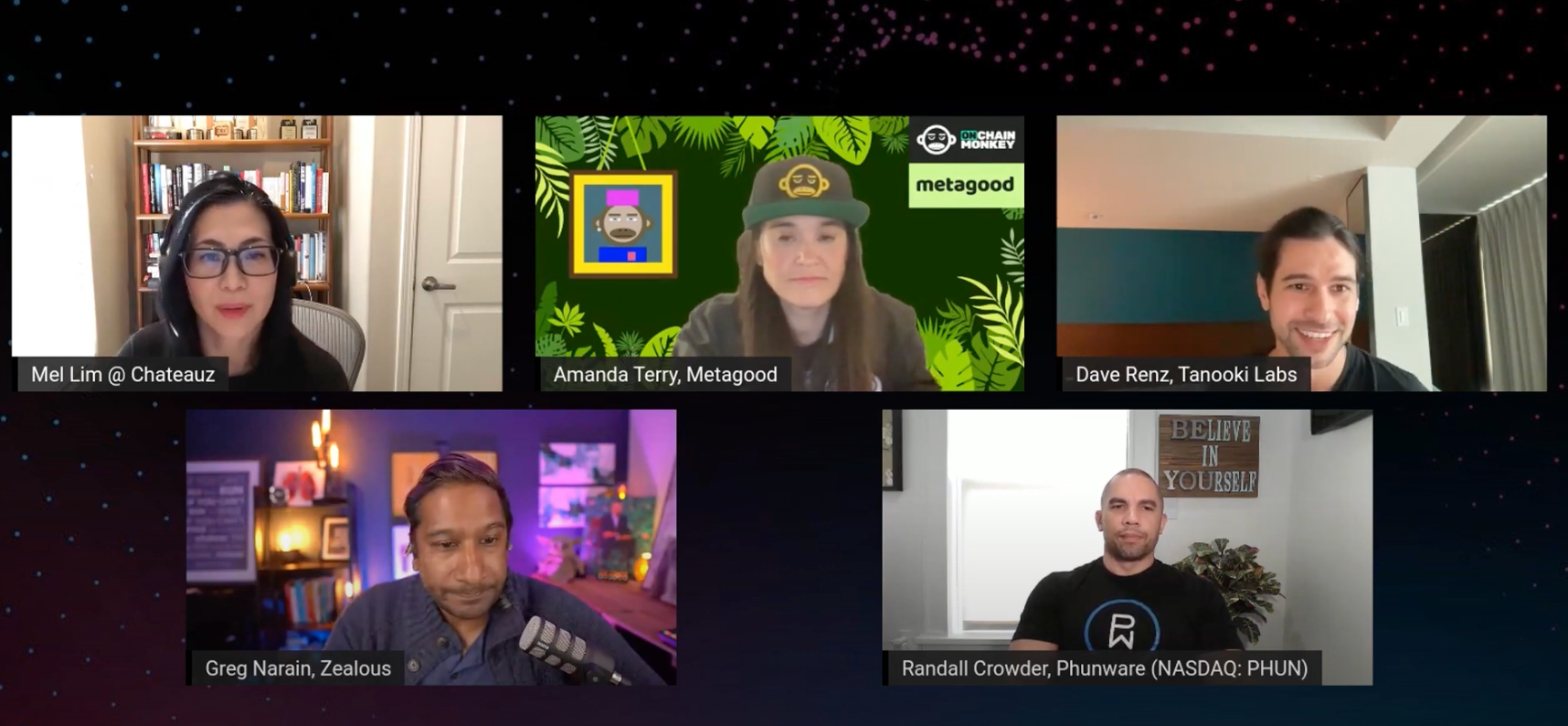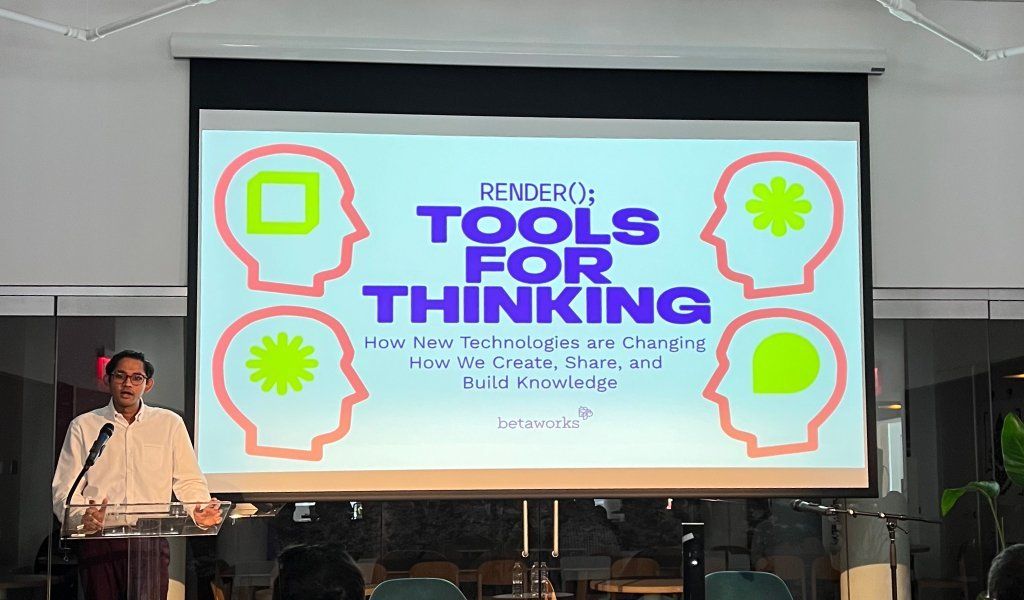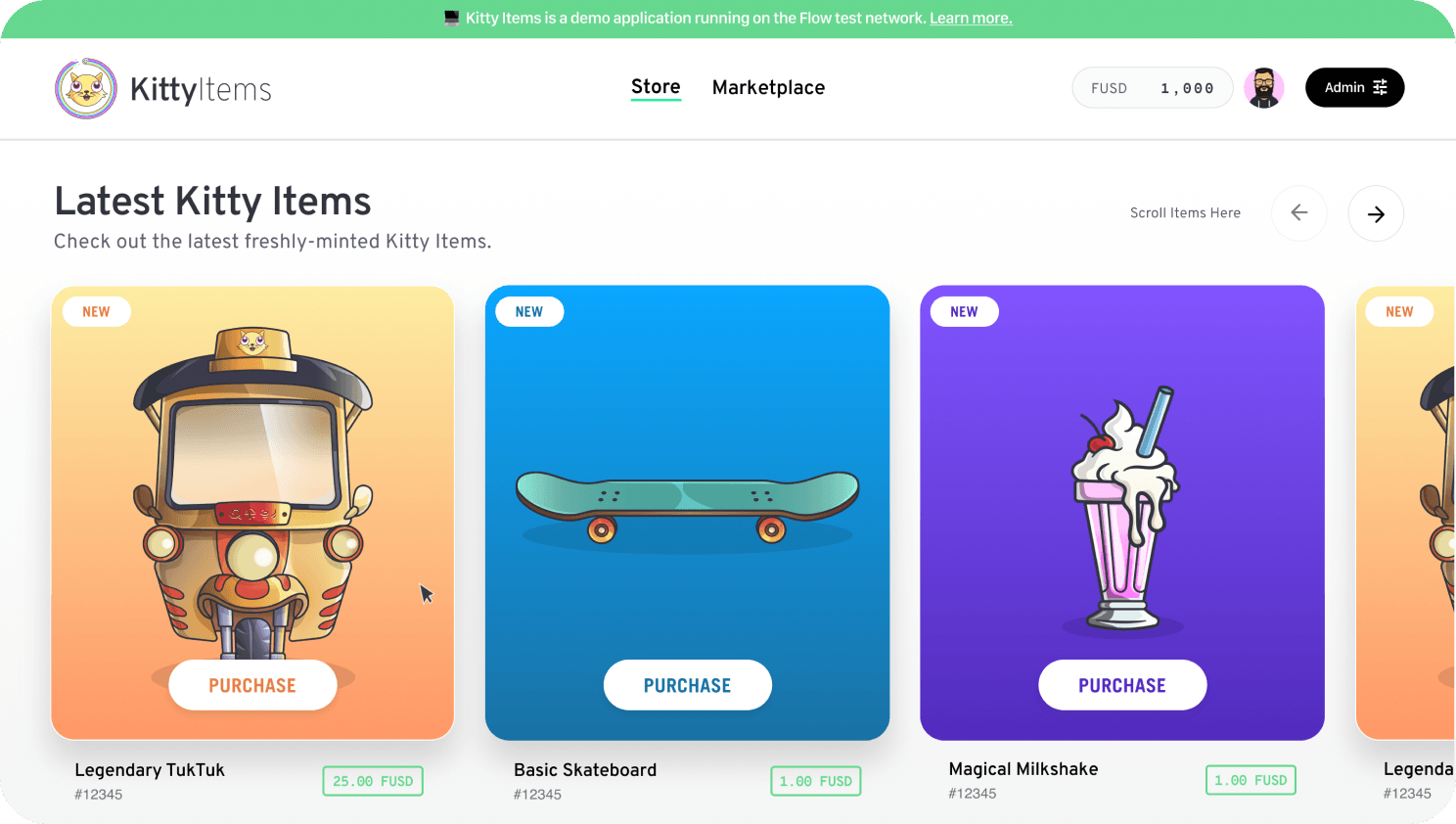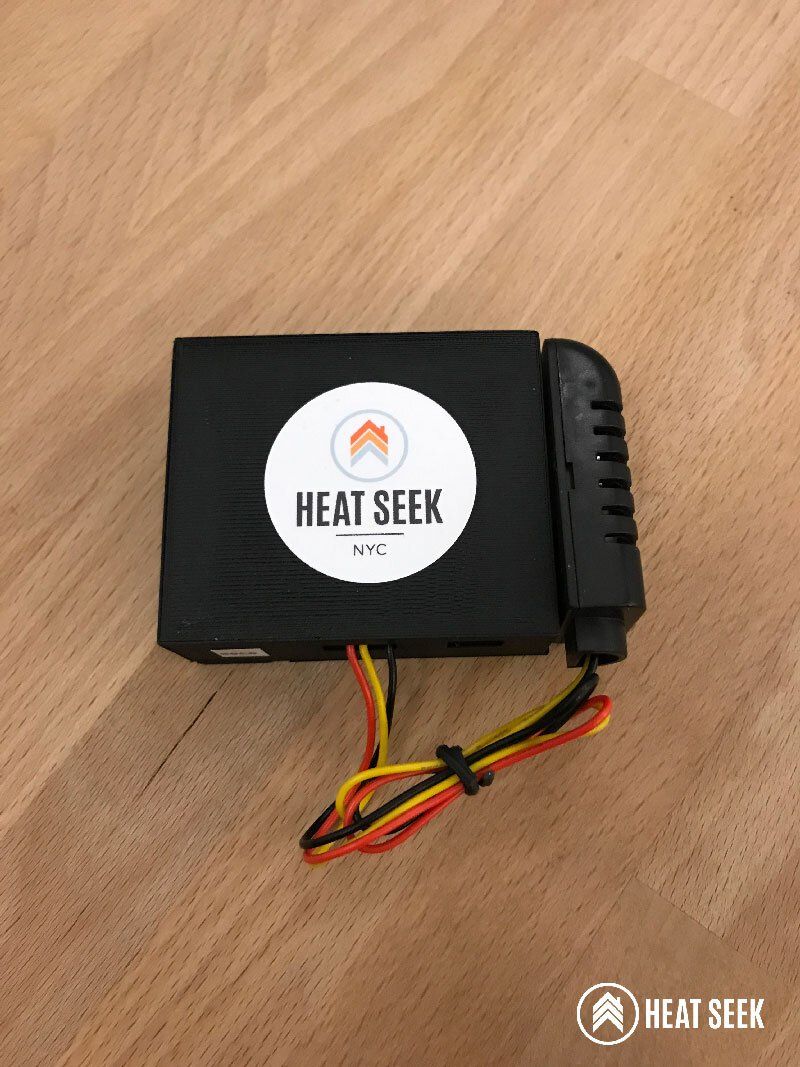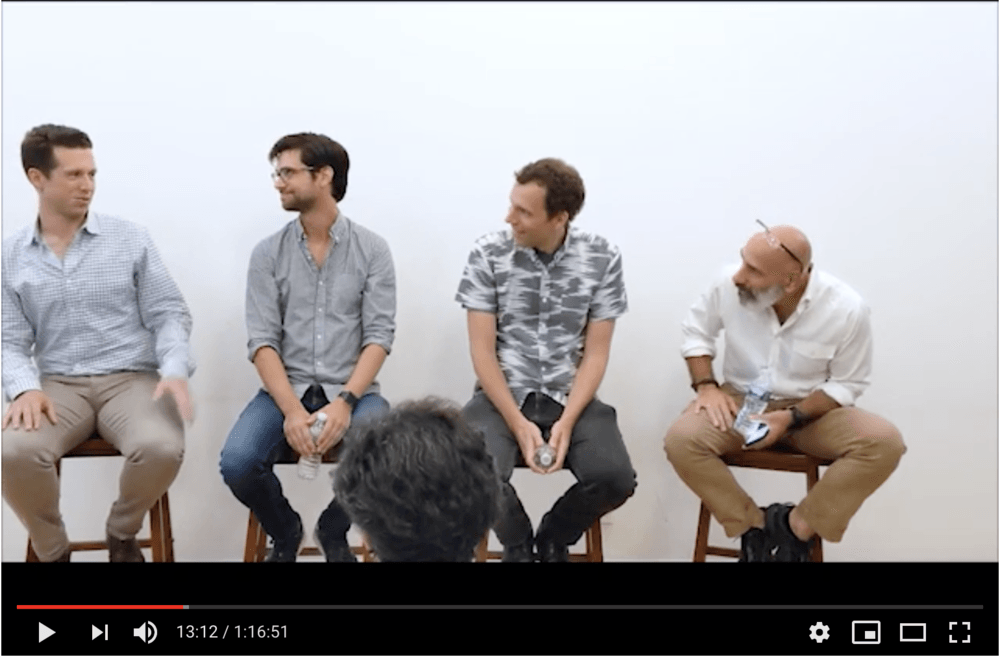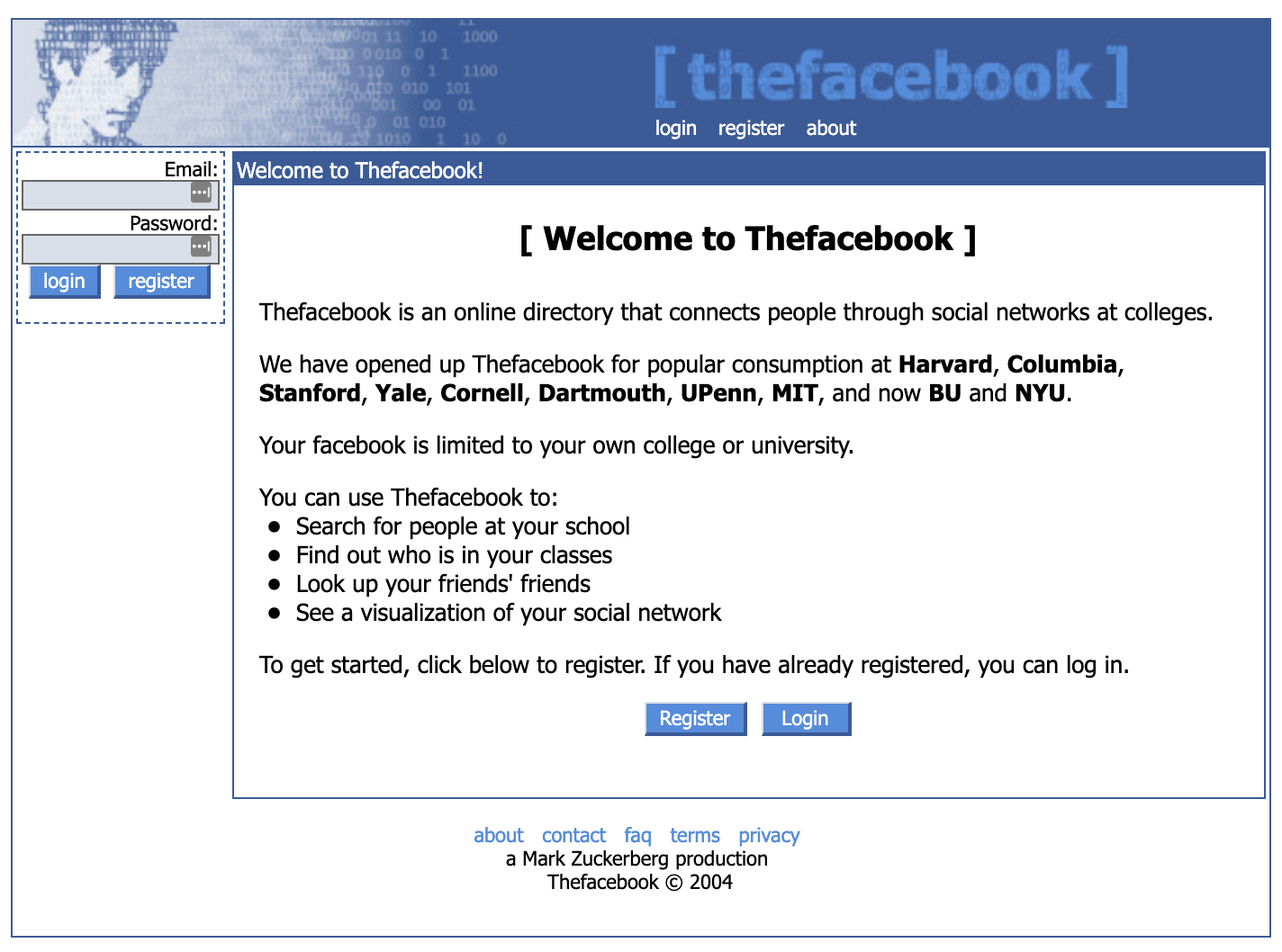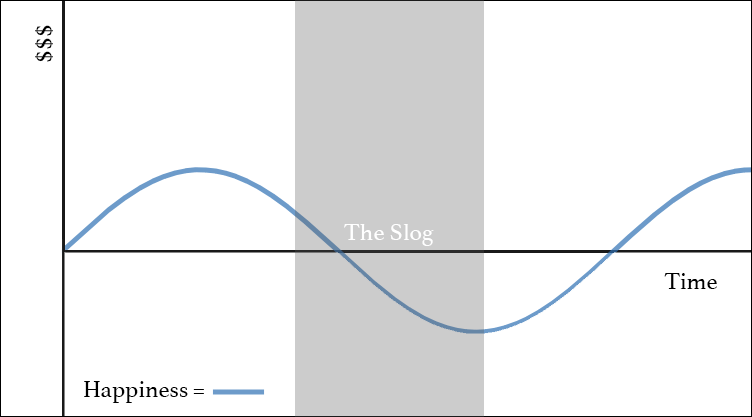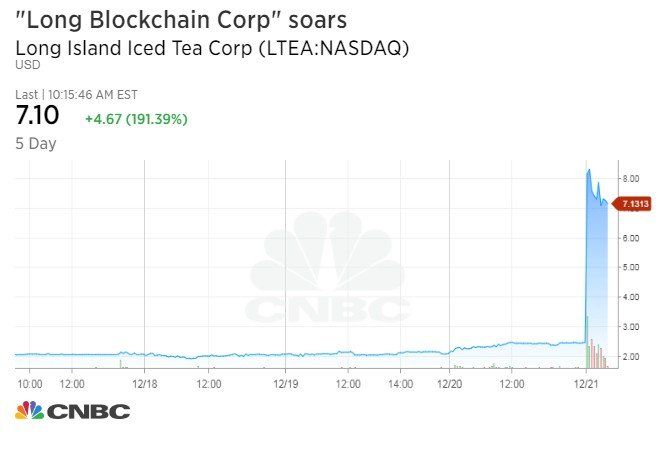Tanooki Talks
Tanooki Talks
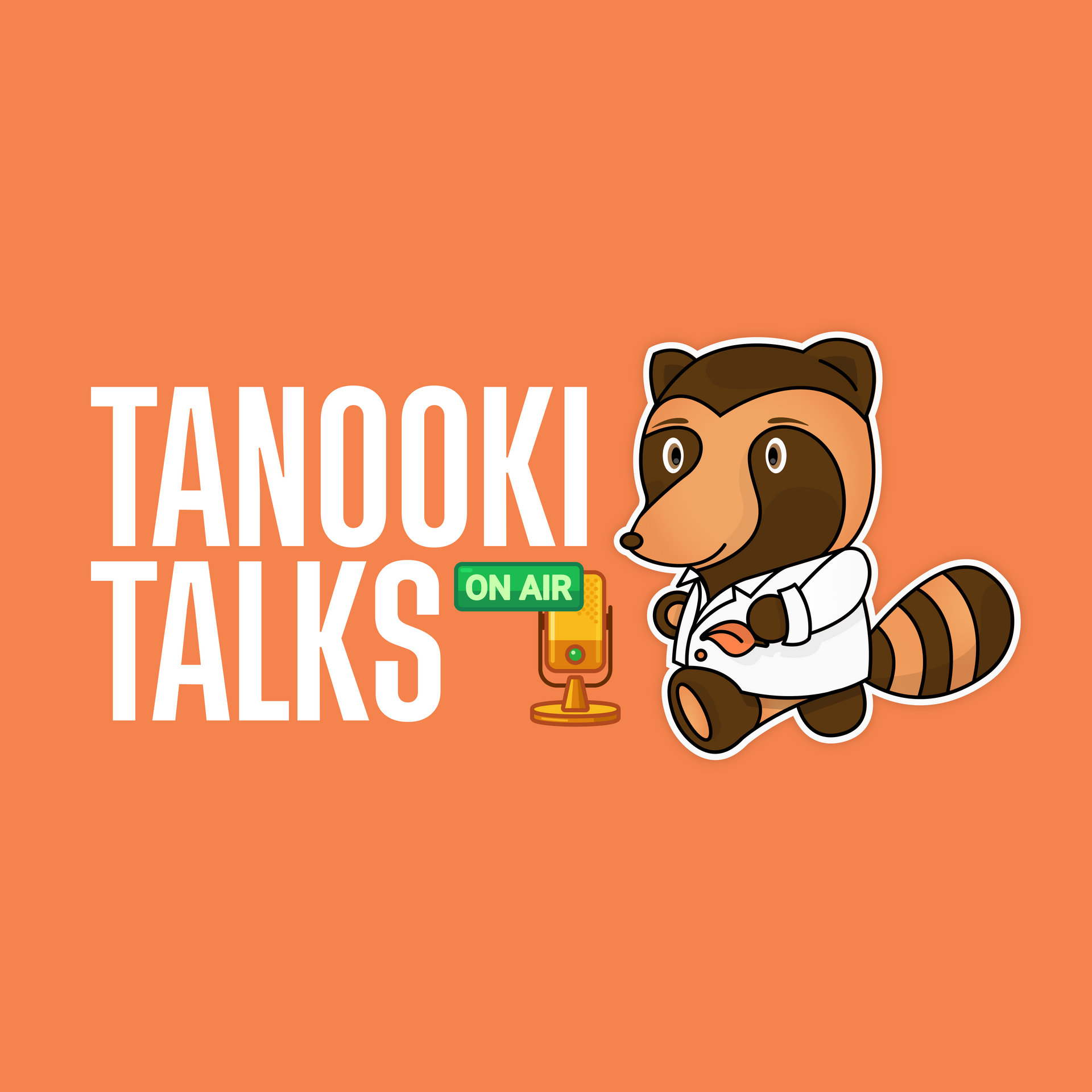
By Dan Scholz
•
October 17, 2023
One of the best parts of working at Tanooki is the different experiences we get from partnering with our incredible clients. We continue to learn new things every week and thought: “Why keep those learnings to ourselves?” Enter: Tanooki Talks . Every other week Tanooki co-founders Eric and Dave discuss the world of technology with me as well as some of the amazing entrepreneurs we’ve had the pleasure to know and work with over the past 10 years. Recent topics have included, “Will AI Take My Job?”, “Lessons from our side-hustles…”, and “What is RAG?”. In a future episode, we’ll be starting a new series talking about how entrepreneurs come to the beginning of their tech product journey by diving deep into one of our own products, Tanooki OS, the agency operating system. So join us every other Friday, you can listen and subscribe on the Podcast app of your choice simply by clicking this link . And we hope you do!

By Aubrey Sabala
•
April 26, 2023
This is the second in a series of articles where we’re sharing our thoughts on the industry, some tips and tricks, and advice that has helped us (and hopefully will help you, too!). Today, we're talking to Marketing & Operations expert, Aubrey Sabala, who has spent 20+ working with companies including Google, Meta, AOL, and Dentsu and now runs Aubvious , a marketing consultancy. Here is her advice for startups and companies of all sizes. Growth-hacking. Ambush Marketing. Call it what you will, but any of these buzzword-friendly strategies are NOT the best way to market your startup. Instead, focusing on the basics and building a sustainable - yet malleable - Marketing strategy will help you grow and maintain that growth. I don’t recommend this to be contrary; instead, it’s because I’ve seen too many smart founders chase the next big Marketing approach, only to realize that one of their key foundational elements was missing, be it brand, voice, or even a testing methodology. And after 20+ years of marketing companies and products both big and small, I’ve found the following tenets to be true. Think like a scientist. This is my strongest piece of advice, and not just because my left-brain genetics training makes any other way foreign to me. In fact, Marketing is often just a real-world science experiment. Isolate a variable (so you know what is causing the outcome). Test & learn (so you don’t continue to make the same mistakes). And above all, ensure that you’re able to track and measure all channels so you’re seeing causation, not just correlation. Marketing doesn’t exist in a silo. It can’t succeed unless your Marketer(s) are in lock-step with your Product and Operations team; employ a cross-functional Slack channel and include your Marketers in daily standups, even from the onset. This allows them to understand the full nature of the product and potentially influence features that can inherently further Marketing efforts. Hire wisely. Every company is different, but I always recommend that founders budget for a seasoned Marketer who can help define the blueprint for their Marketing plan. Whether you hire an Agency, a Fractional CMO, or bring a trained Marketer in-house, you need someone at the helm who has walked this path before and can help you avoid any pitfalls; you’re paying for them to help you avoid the mistakes they’ve already seen or even made in the past. More often than not, a combination of a seasoned Marketer - even if it’s only a couple of hours a week - plus a less-tenured but eager-to-learn junior employee creates a powerful team. Flaunt your strengths. What problem are you solving? If you don’t have a clear and realistic answer to that, stop any and all Marketing efforts and ensure that your product is filling a need in the industry, AND that you are able to clearly articulate what that is. How are you helping people (save time / save money / eliminate frustration)? Talk to people like people. And while we’re at it, let’s try and leave the jargon behind. I want to quickly know what the product does and why it would help me. Use real words, and ones that people understand. As Ted Lasso wisely said recently (no spoilers): KISSP. Keep It Simple, Smarty Pants. Spend money sparingly. Act like your Marketing budget is your personal bank account, and that you’re a finicky auditor. You can always spend money on ads, but you may not always have to. Creativity + testing new ideas can often be more effective than costly CPC ads. Operations are just as important. Let software like Monday.com, ClickUp, or Asana help you plan and track your progress, and keep things moving forward. I rely on Monday to help me balance the multiple priorities from my clients (and also my life; I’ve automated Parent of the Week reminders as the Class Mom!), as well as serve as a repository for documents, allow streamlined approval, and show results, right within the same system. Don’t over-architect the solution . I’m not contradicting myself, I promise! But be realistic about what you actually need in terms of software or tools to help you succeed. Depending on your company’s size and maturity, Hubspot might be a solid CRM / Marketing Automation tool, but you could also accomplish much of the same with a strong project plan, an Excel spreadsheet, and your email account. Don’t be daunted; a lot of this advice is common sense, and give yourself permission to fail. Many times. I used to give my Marketing team a “Failure of the Quarter” award, since I wanted to encourage people to come up with big, crazy ideas, and allow them to fail stupendously. (It also came with a bottle of champers.). After all, Marketing is just a fancy term for sharing something that you think is cool & helpful. And regardess of the strategy, focusing on THAT as a core tenet will prevent you from wanting (or needing!) to hack or ambush anything or anyone.

By Eric Skiff
•
March 28, 2023
This is the first in a series of articles where we’re sharing our thoughts on the industry, tips and tricks, and some advice that has helped us throughout our 10+ years. Up first, we’re talking to our Co-Founder, Eric Skiff, and asked him: What is the best piece of advice you can give a first-time founder? READ . Get a kindle or an Audible account and use your commutes, chore time, etc to start focusing on this. You’re going to need to be an expert in product, marketing, running a business, managing your people, fundraising, your industry, and how companies like yours have worked in other industries… just to name a few. Start reading or listening to books today. When we were initially building Tanooki, my Co-Founder Dave started showing up one day with all of these great ideas, and I realized he was reading books related to our business and totally leveling up. I committed to doing the same, and since then we’ve read hundreds of books. It’s amazing how applicable learnings from one area can be to other problems you face, and I’ve NEVER regretted reading a book, even when I heartily disagree with it. Either way, I’ve learned, and I know that we now run a better company and have become better leaders because of it. If you need somewhere to start, here’s my shortlist for anyone building a tech product and running a company: Never Split the Difference Way mo r e than a negotiation book, this will change how you relate to the people in your life, and use your empathy to hear what they really want…not always what they’re asking for. Building A Story Brand We all have to sell: ourselves, our products, our companies. This book is a master-class in understanding what your customer needs, crafting your message to make them the hero of the story, and positioning your product as the crucial tool they need to succeed. Traction: How Any Startup Can Achieve Explosive Customer Growth Before you can sell, you need to find people to sell to! This book walks through a process for trying experiments, looking for your niche, and then laser-focusing your marketing spend to fill your funnel. Traction: Get a Grip on Your Business A totally different book with a similar name. Traction by Gino Wickman is about building the operating system for your business, setting the strategy, and using a quarterly meeting rhythm. Also known as “EOS” of the Enterprise Operating System, this has been amazing for aligning everyone on the goals and working in the same direction. Built to Sell: Creating a Business That Can Thrive Without You What makes your business attractive to potential acquirers? Learn how to build those metrics and get your business hitting them in a way that you could step away. Once you do, you might find you’re having a lot more fun running your business and no longer want to sell! The E-Myth Revisited A classic for a reason! This book is especially helpful for anyone starting a small business, but I’ve found it applies to early startups as well. You need documentation, routine, and repeatability or you can never scale past the hand-to-hand stage. Competing Against Luck Unlock real innovation by understanding the job that customers are hiring your product to do, and what the real competitors are that they might choose (including using nothing at all). The Great Game of Business, Expanded and Updated: The Only Sensible Way to Run a Company and its more engaging sequel, A Stake in the Outcome These books absolutely changed the way we’ve run our company and any company we’ll start after this. They pioneered open book management and profit sharing, and if you’re giving anyone equity, I highly recommend reading these books to understand how to align that equity with shared goals. We’d love to hear from YOU - what’s on your “required reading” list?

By Dave Renz
•
February 28, 2023
So often these days, we hear both Founders and VCs insist that the only way to grow (or get or receive funding) is to hire a robust internal team of top talent, boasting credentials from big Tech companies. While we agree that putting the right people in place is crucial, we approach it differently, and have seen success again and again from this model. We advocate for kickstarting your progress by first hiring an agency, then proactively hire full-time employees as you build. Here’s why it works. Provides Structure & Stability Hiring a top developer into a nascent organizational structure and non-existent code-base, without process or managerial support, sets everyone up for failure. What is the deploy process? What flavor of Agile methodology should you use? What project management tools do you use? What development platform do you choose? These are just a few of the countless, important decisions that could be made incorrectly the first time. But quality Agencies like Tanooki have already crossed this path and will help you avoid wasting time & money on wrong initial choices. By letting an Agency build out the structure & put the product development processes in place, a company can then bring in strong developers and give them a head start on being productive. Provides Top Talent Efficiency Agencies can get a bad rap for being costly, but the math doesn’t support it. Founders should think about the value created given the resources invested. You’re getting a team of tenured, top-of-their-game specialists who are dedicated to the project at hand, at whatever percentage of allocation makes sense. You likely don’t need 100% of a seasoned Marketer from the onset, though you should have someone thinking about your go-to-market strategy as you continue to build. Especially for startups, it makes more sense to invest in fractional top talent - and an Agency model provides security in both business processes and allocation - than paying an inflated salary and significant equity for a mid-tier professional that will likely have to learn a lot on the job. Allows for Smart Succession As your product takes shape and you continue to build, NOW is the time to start thinking about strategic hires. And let your Agency help you source. After all, they were pivotal in the initial product development process and will know what type of employee would best serve your team. They will also help to ramp up those employees in a functional product development cycle. And as the Agency’s purview shifts from primary build responsibility to an augmentation of your now-growing team, you can pull them back in when needed (to accelerate a new feature or backfill any organizational holes) and do so at an efficient cost. It goes without saying that the Agency’s capabilities are a critical element. But, if you find the right blend of an Agency you can trust that has experience working with companies like yours, we believe you can expect more reliable outcomes in terms of quality and on-time delivery. We’ve proven this model for over ten years, and have countless success stories that have allowed us to work with companies multiple times over many years. And in an ever-competitive marketplace, we’d argue that thoughtful growth and scaling is what founders and VCs should be looking for in their investments.

By Dan Scholz
•
May 24, 2018
Despite the fact that they’ve been around in one form or another since 2014, ICOs are still the new kids on the block. As the new kids there is still a lot of uncertainty about what, exactly, an ICO is. Is an ICO a security? Is it a utility? Is it both? Neither? Because of this uncertainty we’re all still figuring out the safest and most secure way to run an ICO. In 2018 we are starting to see regulations come down from the SEC and because of that crossing t’s and dotting i’s has never been more important.
Tell us about your project or join the Tanooki newsletter!
© 2025
All Rights Reserved • Tanooki Labs LLC


